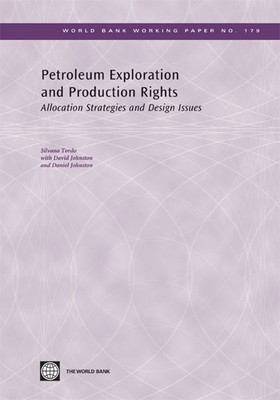
- We will send in 10–14 business days.
- Author: Silvana Tordo
- Publisher: World Bank Publications
- ISBN-10: 0821381679
- ISBN-13: 9780821381670
- Format: 17.5 x 24.6 x 1 cm, softcover
- Language: English
- SAVE -10% with code: EXTRA
Reviews
Description
Many governments rely on oil companies to efficiently exploit natural resources. Governments have the challenging task of deciding which companies should be awarded exclusive rights to explore, develop, and produce their petroleum resources, and on what conditions such rights should be awarded. This paper analyzes the available evidence on the advantages and disadvantages of various systems used by petroleum-producing countries to allocate petroleum exploration, development, and production rights, and considers the policy implications of each system. The experience of six petroleum-producing countries is presented in detail, and numerous other examples are provided to derive lessons of wider applicability. The paper presents various conclusions for policy makers about the optimal design of allocation systems.
EXTRA 10 % discount with code: EXTRA
The promotion ends in 20d.17:16:02
The discount code is valid when purchasing from 10 €. Discounts do not stack.
- Author: Silvana Tordo
- Publisher: World Bank Publications
- ISBN-10: 0821381679
- ISBN-13: 9780821381670
- Format: 17.5 x 24.6 x 1 cm, softcover
- Language: English English
Many governments rely on oil companies to efficiently exploit natural resources. Governments have the challenging task of deciding which companies should be awarded exclusive rights to explore, develop, and produce their petroleum resources, and on what conditions such rights should be awarded. This paper analyzes the available evidence on the advantages and disadvantages of various systems used by petroleum-producing countries to allocate petroleum exploration, development, and production rights, and considers the policy implications of each system. The experience of six petroleum-producing countries is presented in detail, and numerous other examples are provided to derive lessons of wider applicability. The paper presents various conclusions for policy makers about the optimal design of allocation systems.


Reviews